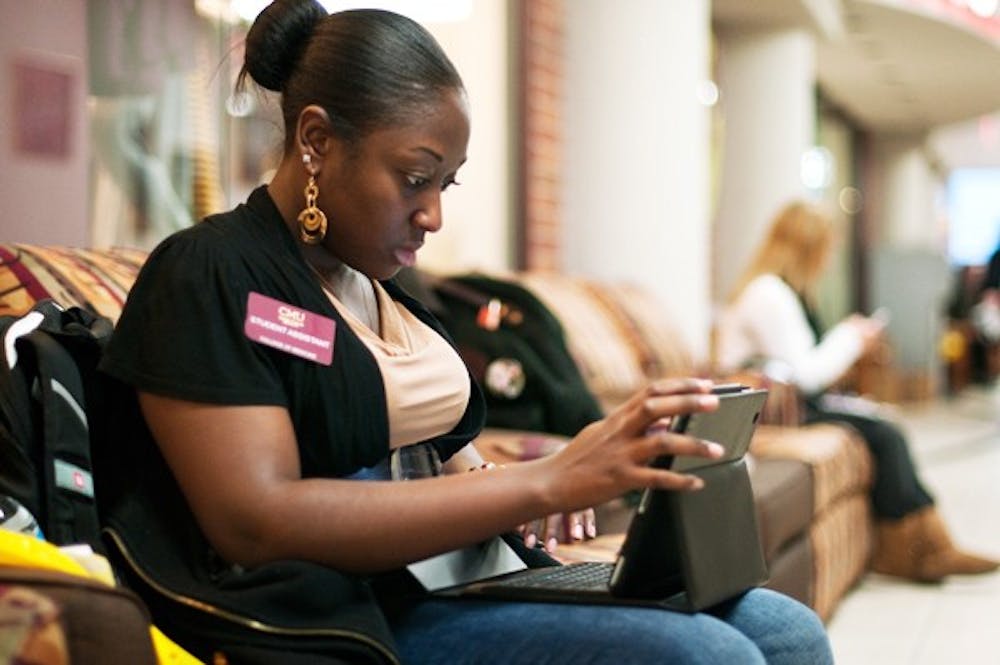Paper-bound textbooks still greatly outsell e-books at CMU Bookstore

E-textbooks and tablets tempt students with an academic world where it takes 5 minutes to buy books, 25 pounds of textbooks only weigh 1.33 pounds and $400 worth of paper textbooks could be had for about $240.
Though iPads and other tablets have been popping up in classrooms across the country, CMU Bookstore Director Barry Waters said.
"The current generation grew up learning with books. Today, students K-12 use books, not computers," Waters said. "Until kids are using such devices (tablets) in secondary education, I don’t see it as a big trend."
Waters said the CMU Bookstore has been selling e-textbooks for almost four years, but sales are not competitive with paper-bound textbooks.
“The pull for e-books comes from the publishers," Waters said. "They want them to go electronic, but faculty and students aren’t ready for it."
Six summers ago, all four major publishing companies increased textbook prices 13 to 35 percent, Waters said. Despite e-textbooks selling for about 60 percent of the cost of a new textbook, the digital price ceiling is way too high, he said.
Functioning more like a rental than a permanent purchase, most e-textbooks expire at the end of the semester.
Some students agreed with Waters when it comes to the prices of new technology.
“I have an iPad, but I feel like renting textbooks is cheaper than e-textbooks,” said Cheboygen senior Isabelle Rose.
Rose said her preference for paper books was about more than just cost.
“I also like to write notes in my book and will often keep it after the semester," she said.
So even with the proliferation of e-textbooks and the option to buy textbooks online, the CMU Bookstore has seen little change.
“I’m too lazy to look online," Midland senior Reed Phillips said. "Buying books here is very easy."
Alexis Boscarino, a junior from Richmond, agreed with Phillips.
“It’s more convenient. Going online takes too much time,” Boscarino said.
But not everyone is against the idea of e-textbooks.
“Science books are huge. To have everything electronically would be much more convenient,” said Detroit senior Arrionna Dryden, who is studying biomedical sciences.
Dryden said she uses her iPad mainly for organization, though she wishes she could use it more because of its convenience.
Four classes at CMU require the purchase or rental of an iPad.
“Through social media and iPads, we can flip the educational (model) from going to class lectures then going home to do homework, to students watching lectures at home and then working on projects in class with the professors and other students together,” said James Melton, assistant professor of business information systems department.



